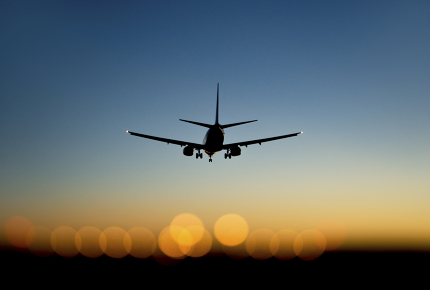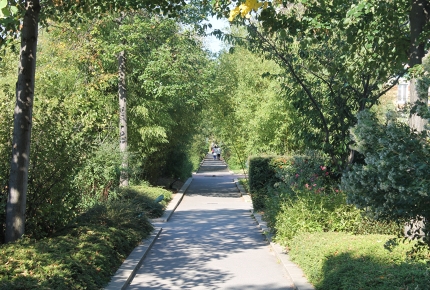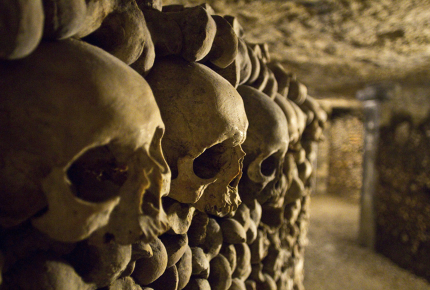Is spontaneous travel dead?
Armed with just a toothbrush, a worn passport and £150 in cash, we send Jack Palfrey to investigate if it’s still efficacious to travel on a whim.
The Airport
“I’m sorry, what exactly are you asking me for?”
The woman sitting behind the airline desk with the wart on her cheek is flustered. She claws at the end of her cravat that’s wrapped loosely around her neck.
“I want to book onto the next cheap flight leaving the airport,” I reply.
“And where would you like to go?”
“Anywhere.”
The woman’s eyes widen momentarily as she attempts to process this unformatted request. She stares at her blank screen for a few seconds then turns back to me.
“Just one moment,” she says smiling sweetly, then leaves to either have a breakdown or find her manager.
I’ve been traipsing around Gatwick Airport for over an hour, trying to book myself onto a budget flight departing the airport imminently. The response is always the same: confusion, bemusement or sheer horror.
Growing complacent, I head to a budget airline ticket kiosk where two young girls are hunched on their elbows looking bored. When I ask about cheap flights leaving today, they laugh at the absurdity (I'm the first person they've met to make such a request), then begin furiously tapping on their keyboards, happy to have something to do.
“The cheapest fare I can find leaving today is to Berlin,” says one after a few minutes.
“Great. How much is that?” I ask buoyantly.
“£75 one way,” answers the other.
“And it’s an online-only offer,” she adds, “so you’d have to book via our website.”
Back in the primitive days before the dawn of the internet, it was common place for travellers to arrive at the airport and book their flights for that afternoon. Passengers feeling impulsive could even put themselves forward for a standby ticket, allowing them entry to any departing aircraft with vacant seats for the price of a standard fare.
While standby for earlier flights began as a free service on many airlines, most carriers in America, and throughout the world, now charge a hefty surcharge for unconfirmed standby.
The airline companies know those who want to fly last minute usually need to, and are therefore willing to pay over the odds. Ultimately it’s more profitable for airlines to fly with empty seats than encourage passengers to purchase discount fares at the airport.
I let out a soft sigh. I’m four hours into my spontaneous trip, in which I’ve been tasked with uncovering whether travelling on a whim is still feasible in 2015, and I have yet to make it out of Greater London.
 The sun is setting on the days of last-minute flights
The sun is setting on the days of last-minute flightsPink Badger / Thinkstock
The Car
Deflated but no less determined, I begin whittling through other potential forms of long-distance transport. Last-minute trains are expensive, ticketing in a similar way to airlines (preferring tickets to be bought in advance and assuming those who travel last minute need to do so), while buses, though cheap, are achingly slow and provide a vomit-inducing level of comfort.
A desperate smartphone Google search returns a car-sharing service, Blabla Car. I tap in the details, travelling from ‘London’, to destination ‘Anywhere’, and find an answer to my prayers in the form of a blue Hyundai leaving for Paris that afternoon.
The car pulls up outside Bromley-by-Bow tube station in North London a little after 3pm. There are a few awkward half glances before I take the plunge and produce a sort of twitching-wave to identify myself to the driver, a 23-year-old male named Julien.
Julien is my idea of a typical Parisian; his features are sharp, his hair is long and there’s a Marlboro hanging from his lower lip. He also strikes me as sort of rude. He ushers me into the vehicle, like a middle-aged woman pushing a skittish cat into a travel cage, and I slide into the front seat.
Behind me two young ladies, who, like Julien, are in their mid-20s, introduce themselves as Camille and Jessica. They are huddled together between two giant rucksacks.
The small talk only sustains us for a few minutes and soon we’re all sitting rigidly listening to the whir of the car’s engine. I spot the duct tape wound round the car’s left wing mirror and wish I’d shelled out for the Berlin flights.
A spherical moon brightens the night sky and the car’s headlights flicker into life as we emerge from the large Eurotunnel train carriage in France.
“Where are you staying in Paris?” asks Camille from somewhere in the darkness, her thick French accent prominent in every syllable.
I’d picked a hostel on my smartphone during the journey based on it being cheap and appearing near the top of the online search results.
“And you’ve booked?” she asks pragmatically.
“No. I just thought I’d turn up.” I say with a sort of dumb smile.
Both girls shoot me a bewildered look.
The exchange, though short, serves as the icebreaker we’ve all been craving and the mood in the car significantly mellows. We begin chatting about things that Europeans in their mid-20s typically talk about, including recreational drug use and electronic music.
Jessica speaks intensely about her favourite London nightclubs, and eventually coaxes Julien to play a CD of his own DJ set. He willingly obliges and cranks the volume to maximum. The car rattles with every beat as we hurtle through the smoggy darkness towards Paris at 145kph (90mph).
 The Promenade Plantée is a former railway track
The Promenade Plantée is a former railway trackJack Palfrey
The Destination
It’s around 9am when I emerge from my hostel, which hiked up the prices due to my lack of a reservation. I take in deep breaths of the crisp Paris autumn air and allow the memories of last night’s bizarre journey to fade away in the morning breeze.
Of course I had no real plans for the day ahead. A fellow guest in the hostel recommended a walk along the Promenade Plantée, an old railway viaduct that’s become one of the city’s more unique public parks. Embracing spontaneity, I decide to give it a go.
The crisp morning gives way to a sunny afternoon, and I feel content as I stroll along the 4.7km (3-mile) walkway that runs high above the crowded streets of Paris’ 12th arrondissement.
I pass groups of students congregating round benches and couples lounging beneath walls adorned with striking graffiti. Pensioners in plaid suits sit and study the morning news while joggers stomp past, stealing sideways glances at the greenery that lines the narrow walkway.
I stop at a bench looking out over Avenue Daumesnil, where locals and tourists alike scurry between the various shops and cafés, and think about plans for that afternoon.
Quite unimaginatively, I decide to try my luck at the Paris Catacombs, a former quarry-cum-ossuary that houses the skeletal remains of over six million Parisians. It has been a popular tourist draw since the early 19th century.
I join the throng of pedestrians on the metro and make my way to the museum’s entrance in Montparnasse, where, predictably, I find a staggering queue of camera-laden tourists, studying large maps and munching colourful macarons.
I approach a security guard at the attraction’s modest entrance.
“Ticket,” he says expectantly holding out his hand.
“I actually don’t have one,” I reply, “I just thought I’d show up.”
A balding American at the front of the queue can’t suppress a hearty chortle.
“Back of the line” he says, looking through me to the next customer.
As I trudge my way to the back of the bulky queue, I can’t help but feel a sense of disappointment regarding my experiences over the last 24 hours. Faced with a lengthy wait, I pull out my wallet and examine its contents; two dog-eared €10 notes sit alongside a few battered receipts.
There’s a romantic notion I’ve long held that spontaneous travel encourages adventure, excitement and more tangible experiences, but in reality, at least when travelling in Europe on a short timescale, I’ve found it to be inefficient, expensive and perplexingly tricky.
The tourism industry rewards forethought and discourages spontaneity, and both parties are seemingly comfortable with that. For tourists, planning ahead makes travel less stressful, while for airlines and hotels it makes forecasting easier, allowing beds and seats to be filled in advance and fees to fluctuate depending on demand. It also makes last-minute price hikes universally acceptable.
When you choose to ignore this framework and travel on a whim, you quickly find yourself suffering the consequences, whether that’s a perplexed look or a wasted three hours in a queue.
All of which begs the question: the flight apps and the booking sites, are they a convenience or a restriction?
 The Paris Catacombs house the remains of six million people
The Paris Catacombs house the remains of six million peopleBecca Vogt / Thinkstock
Do you have any Feedback about this page?
© 2026 Columbus Travel Media Ltd. All rights reserved. No part of this site may be reproduced without our written permission, click here for information on Columbus Content Solutions.









 You know where
You know where